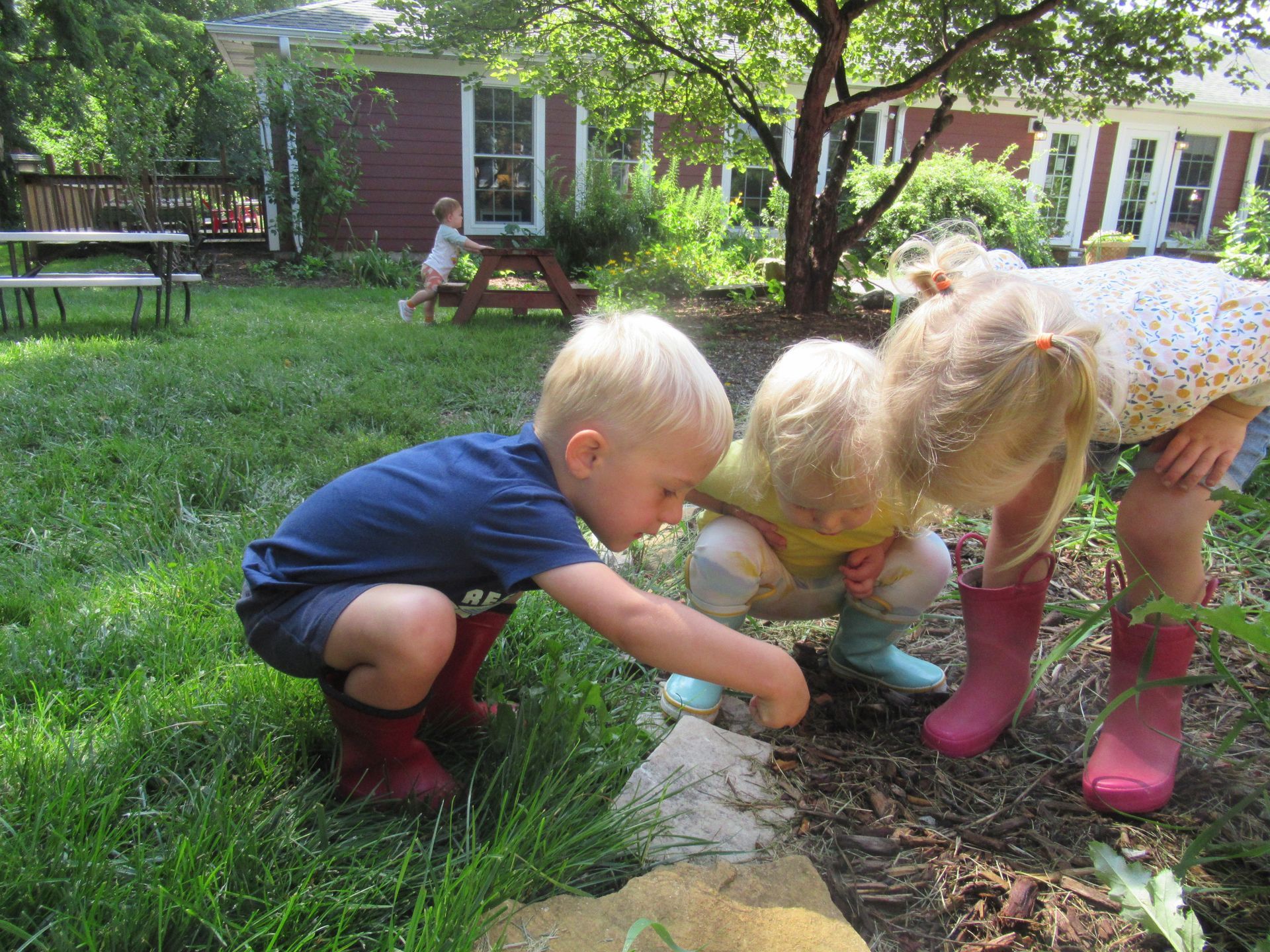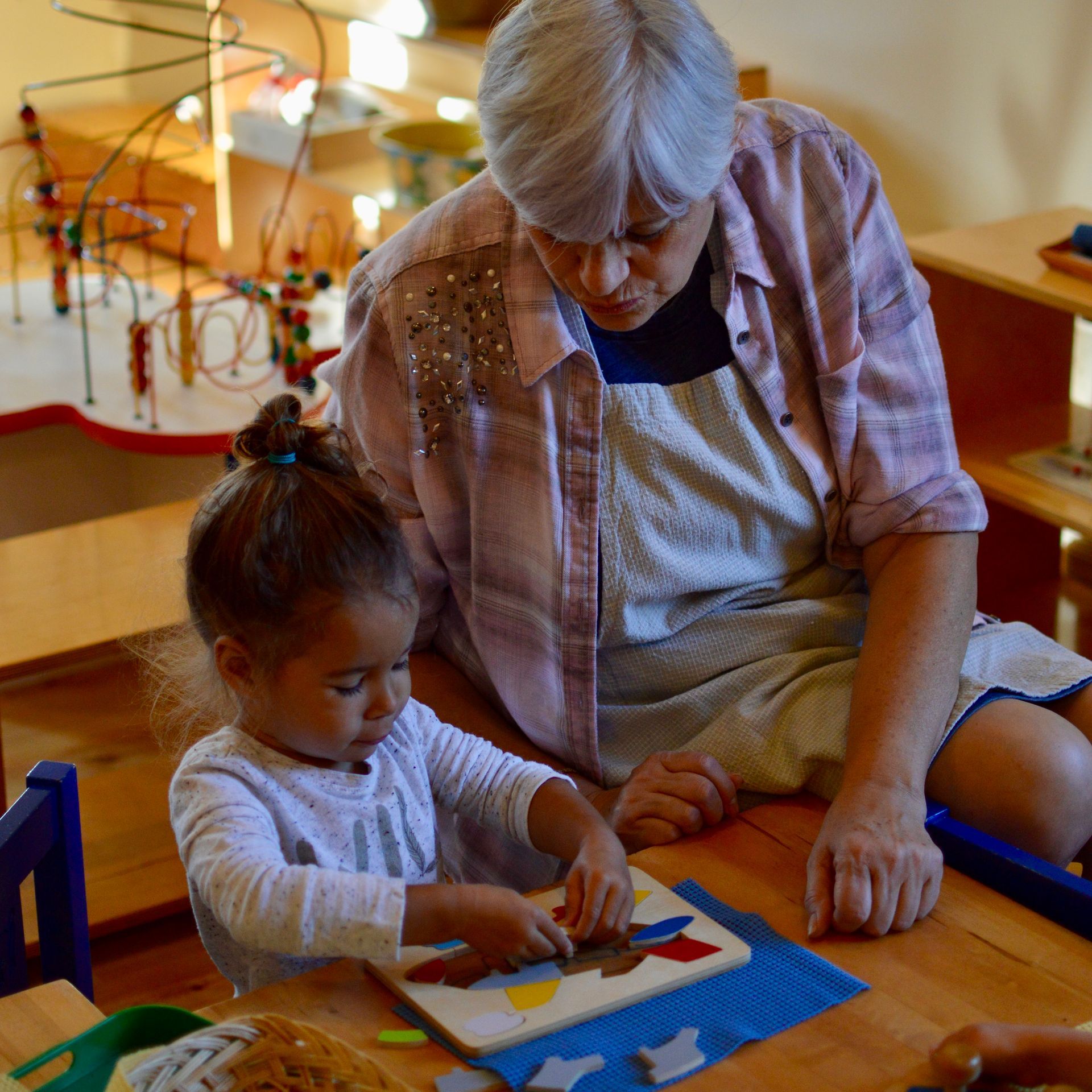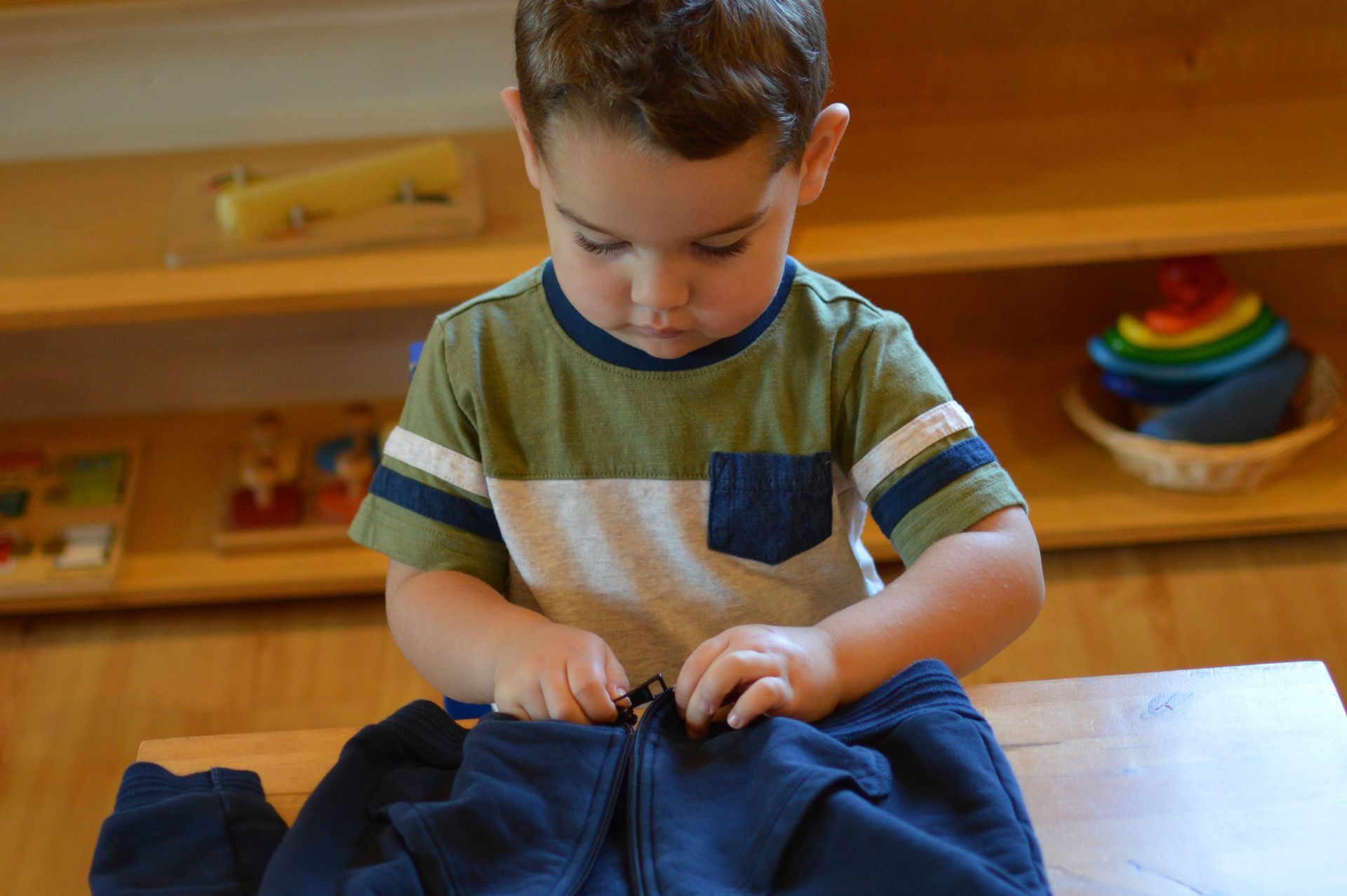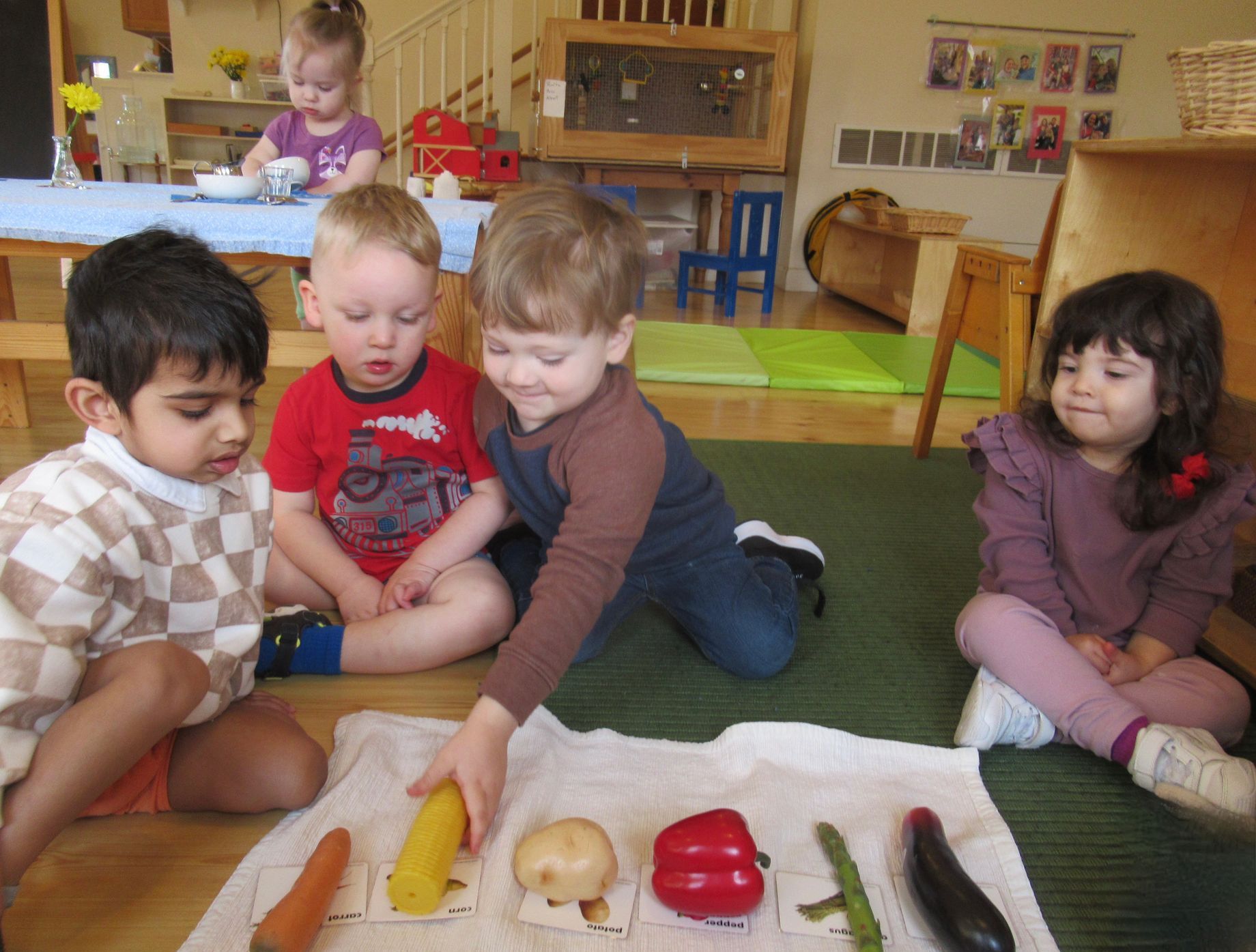Toddler Program
Ages 15-36 months
Three Mornings:
- Monday-Wednesday 8:30-11:15 a.m.
Four Mornings:
- Monday-Thursday 8:30-11:15 a.m.
Overview:
Classroom age requirements: 15 months to 3 years old.
This class meets Monday - Wednesday 8:30-11:15 a.m. or Monday - Thursday 8:30 - 11:15 a.m.
The Toddler Program is designed to be a gentle transition from home to school. Through close cooperation between parents and the teacher, the children are gradually able to separate from their parents without anxiety.
In a respectful and gentle way, Peaceful Pathways' teachers support the child's natural development, with focus always on the encouragement of independence. Toddlers begin building the foundation for who they are to become. They are beginning to form their character, self esteem, purpose of life, social skills, and learning processes.
Activities are positioned around the room for toddlers to choose independently. The materials and activities help the toddlers begin to experience the concept of sequence, form, shape, movement, and sound. The activities change and evolve as the child grows physically, emotionally, and intellectually.
Your child is an acute observer, eager to learn, to explore, to try new skills and to master them through practice. At a very young age, the child is able to concentrate on a task, absorb sequences and procedures, and master new language and physical skills if they are introduced in a way appropriate to the child's age, size and “needs.” In our Toddler Room, active toddlers thrive in an environment where the various aspects of the physical world are introduced in a systematic way by specially trained teachers.
Practical Life:
After toddlers begin walking, usually around 12 months, their hands are free to work. Imitation of adult tasks is the favorite activity at this age. A child between 14 and 30 months is becoming aware of himself as a separate person and shows a need for independence. He is interested in:
- Dressing and undressing himself
- Brushing his own hair and teeth
- Putting things away around the house
- Feeding himself and cooking
- Setting the table and washing dishes
- Using the toilet
- Learning to fold, pour, sweep, and mop
These activities comprise the “practical life” area of the Toddler Program. Grace and courtesy lessons are also introduced to the child at this age. Lessons include waiting until everyone is served before beginning to eat, use of cutlery at the table, greeting others politely, waiting until a person has finished a conversation before approaching them, and respecting one another’s workspace.
Sensorial:
The toddler’s senses are challenged to match objects by size, shape, color, smell, or texture in the environment. Sorting is used to assist the child in creating mental categories, which will soon be named with his developing language skills. Exploring how water, sand, clay, and other materials behave when manipulated is fascinating to the child of this age. Simple puzzles assist the development of special relationships.
Language:
Language develops rapidly between 18 months and age 2. Children learn new words daily. We provide books, objects and pictures for naming. More crucially, the adults in the environment talk and listen carefully to each child during the language lessons. Care is taken to pronounce words accurately and to give precise words for objects and actions.
Activities:
The Toddler Program is an especially designed environment intended for children between the ages of 15 and 35 months. Teachers assist students in acquiring the skills appropriate to their age. Activities include:
- Spoken language development: vocabulary, using words, phrases and sentences as appropriate
- Using art materials - chalk, paint, crayons, scissors, and clay
- Daily singing
- Focus on gross motor development
- Focus on fine motor development
- Food preparation – particularly preparing and cutting vegetables and fruits
- Using cutlery, setting the table, eating and drinking independently
- Sitting at the dining table and eating in a group
- Cleaning up after oneself
- Taking care of others: group work, compassion for others, community building, offering help
- Dressing and undressing
- Awareness of one's needs
- Using the toilet independently
- Categorizing and classifying objects according to color and size
- Learning to fold fabric and roll rugs
As the teacher sees a student has made the necessary acquisitions to handle the activities in the Montessori Primary Classroom, the decision to transition to the Primary Program will be made with the parents.
Peaceful Pathways Montessori Academy is the best school around. Both of my children attended all programs from Parent-Child Class through the Adolescent Classroom and loved the experience. We are very grateful to the teachers and staff for offering a loving environment, challenging academics, and a micro-economy for them to learn and grow their skills. P.P.M.A. is an authentic Montessori school that has beautiful classrooms, new class materials every year, and a gorgeous property with a greenhouse and chicken coop. In the ten years that my children attended P.P.M.A., they gained confidence in themselves to be independent critical thinkers and thrived academically. The transition to public high school was smooth, and they are doing well socially and academically. To this day, both teenagers have a positive relationship with the teachers and friends that they have made over the years.






